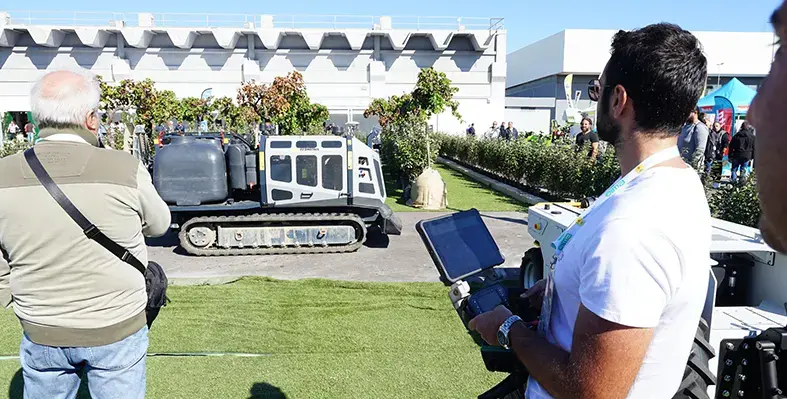As Africa braces for a population boom set to reach 2.5bn by 2050, the continent faces a dual challenge: ensuring food security while preparing a skilled workforce to drive agricultural transformation.
At Agrilevante 2025 in Bari, Italy, this challenge was met head-on with the unveiling of a new international initiative focused on vocational education and technical training for African agricultural and agro-mechanical professionals.
The conference, titled “The New Africa: Education, Training, and Education for Agricultural and Agro-Mechanical Technicians,” marked the start of a collaborative programme driven by FederUnacoma, the Italian Federation of Agricultural Machinery Manufacturers, and Internationalia Publishing House. The programme aims to assess and address skill gaps across the African agri-sector, starting with Tanzania, Tunisia, and Ghana - three pilot countries prioritised in Italy’s Mattei Plan for African development partnerships.
A key takeaway from the event was the potential of education as a catalyst for agricultural innovation. As highlighted in the conference, Africa holds over 60% of the world’s uncultivated arable land, and according to the African Development Bank, the continent’s agri-food market is expected to triple in value over the next five years from US$280bn to US$1tn.
“In a context like Africa’s, where education systems are characterised by numerous problematic elements and a sizeable school dropout rate,” said Gianfranco Belgrano, Director of Africa Affari and Internationalia, “training plays an essential role in meeting the demand for new skills in a constantly evolving market, especially in the agricultural and agro-mechanical sectors.”
The programme aims to go beyond traditional university-level exchanges and address the technical education gap, particularly in agricultural mechanics-a key area often overlooked in previous initiatives. The project will focus on technical and agricultural schools, helping to build a pipeline of trained technicians able to support the modernisation of local farming systems.
“There are great prospects for cooperation between Italian industries and African countries,” added Mariateresa Maschio, President of FederUnacoma. “From the design of technologically advanced agricultural machinery to the creation of high-precision irrigation systems, from supply chain implementation to capacity building, our companies possess excellent know-how that can meet the training needs of African agricultural economies.”
Belgrano reinforced the project’s initial focus: “We decided to launch the project with Tanzania, Tunisia, and Ghana because these are countries with a lot of agricultural area, which have structured school systems and can therefore already begin collaboration programmes with Italian companies.”
As Agrilevante showcases innovation in Mediterranean agri-tech, this new training initiative plants the seeds of long-term partnership, equipping Africa’s future farmers and technicians with the tools they need to succeed.





